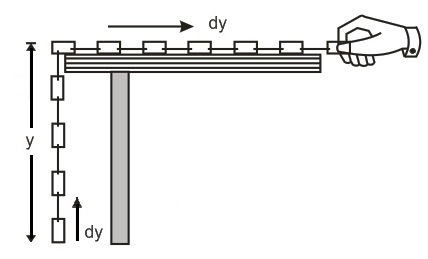Q. A chain is held on a frictionless table with $1/n$ th of its length hanging over the edge. If the chain has a length $L$ and a mass $M$ , how much work is required to pull the hanging part back on the table?
NTA AbhyasNTA Abhyas 2022
Solution:
